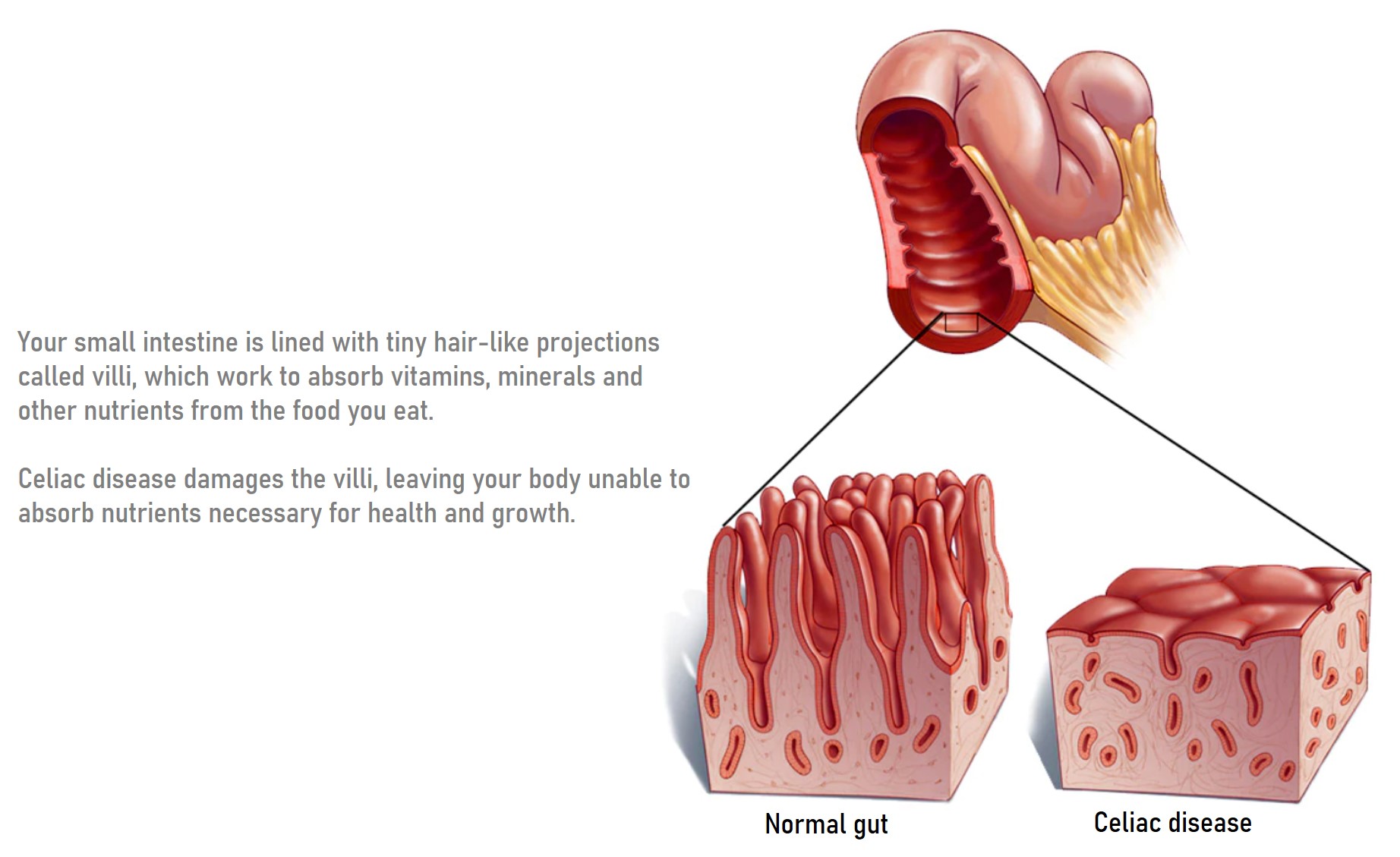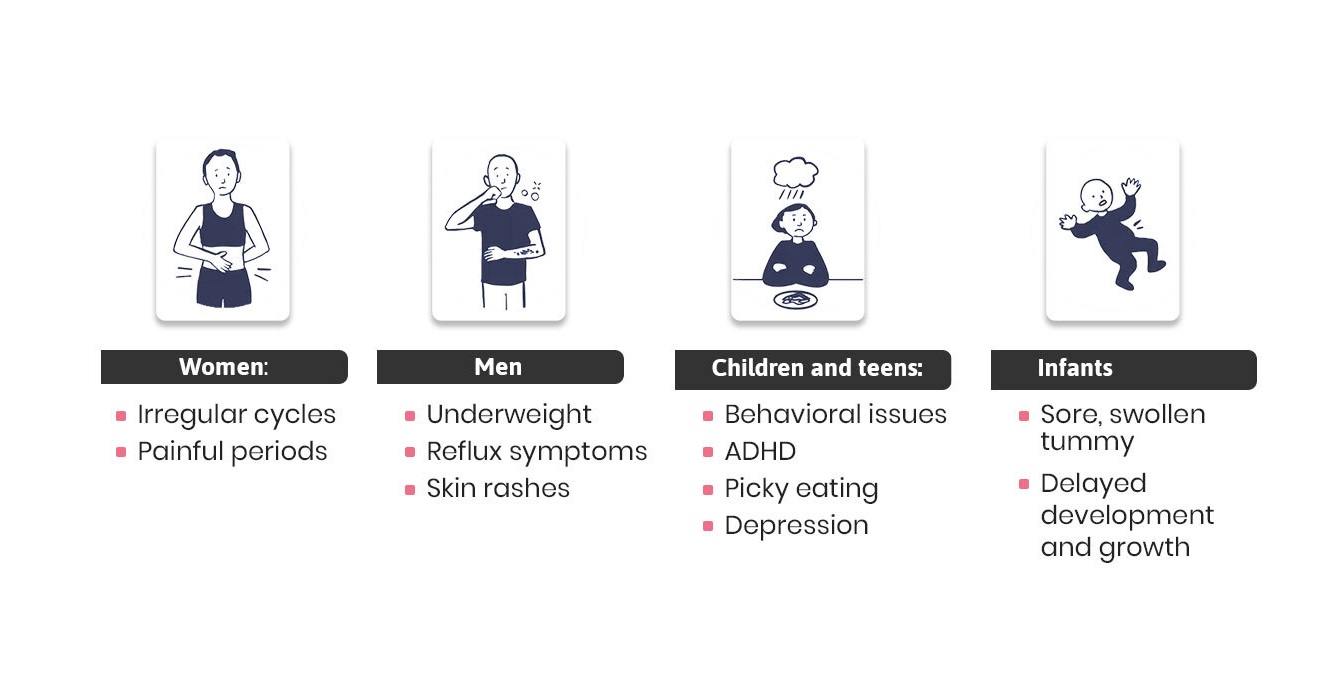What is celiac disease?
Celiac disease is an autoimmune disorder that’s triggered when you eat gluten. Celiac disease is also known as:
- sprue
- nontropical sprue
- gluten-sensitive enteropathy

Gluten is a protein found in foods made with wheat, barley, rye, and triticale. It is also found in oats that have been made in processing plants that handle other grains. Gluten can even be found in some medicines, vitamins, and lipsticks. If you have celiac disease, eating gluten triggers an immune response in your small intestine.
What are the symptoms of celiac disease?
Children and adults tend to have a different set of symptoms.

There’s no cure for celiac disease — but for most people, following a strict gluten-free diet can help manage symptoms and promote intestinal healing. There are certain celiac disease related frequently asked questions that people ask their doctor, so we have compiled all of them.
Celiac Disease FAQs
Celiac disease runs in families. 1 in 22 people have chance of developing celiac disease if their parent or sibling has the condition. People who have autoimmune disease are also more likely to have celiac disease.
Sometimes, people with celiac disease have problems absorbing calcium, iron, folate and other vitamins and minerals. This can lead to iron deficiency anemia and/or low bone density. Further if celiac disease left untreated, it may increase the risk of developing some cancers.
Yes, the parents and siblings of a child with celiac disease should be tested, regardless of whether they’re showing any symptoms, typical or atypical.
This is an ongoing research area.
No because it can be completely managed by proper diet.
Whey is produced from milk and does not contain gluten.
Yes, the damage will heal, and your intestine will look perfectly normal, so long as gluten is avoided.
Not at all. As far as you are feeling well, physical activity is encouraged.







No comments yet.